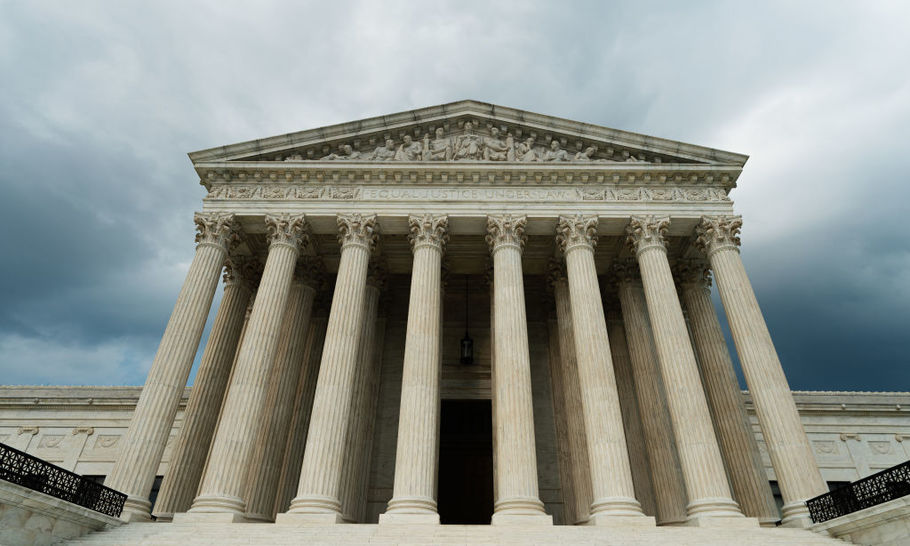Why the Supreme Court is right to rule that Trump is not above the law

Craig Hudson/Bloomberg via Getty Images
The rich are different. Or at least, some of them think they are. For five years, since before he was elected as the 45th President of the United States, Donald Trump has refused to publish his tax returns. Though it has long been customary for all presidential candidates to allow scrutiny of their financial affairs, both past and present, this President has insisted that his returns are “under audit”. A grand jury, set up by New York Democrats, is seeking eight years of these documents. White House lawyers have argued that his office shields him against politically motivated investigations into his finances.
Now, just four months before the presidential election, the Supreme Court has ruled that the public has a right to see these tax returns. Chief Justice Roberts, supported by Justices Gorsuch and Kavanaugh — the latter two appointed by Trump himself — have reaffirmed the principle that nobody is above the law. “In our judicial system, ‘the public has a right to every man’s evidence’. Since the earliest days of the Republic, ‘every man’ has included the President of the United States,” the ruling states. “We reaffirm that principle today and hold that the President is neither absolutely immune from state criminal subpoenas seeking his private papers nor entitled to a heightened standard of need.” The case has been sent back to the lower court for legal argument about what exactly should be disclosed.
Coming in the midst of an election campaign in which Donald Trump is running behind Joe Biden in the polls, this ruling by the Supreme Court takes on a high political significance. Even if, as is still possible, litigation in the lower court is prolonged until after polling day on November 3, the fact remains that these staunchly conservative justices have felt obliged to remind the President that the rule of law applies to him, too. The principle invoked by the Chief Justice has general, indeed universal, validity: it goes to the heart of the constitutionalism that the President claims to uphold.
It was in 1789, during those “earliest days of the Republic”, that Benjamin Franklin, one of the Founding Fathers, uttered one of his most frequently invoked aphorisms: “Our new Constitution is now established, and has an appearance that promises permanency; but in this world nothing can be said to be certain, except death and taxes.”
It ought to be unthinkable that the leader of the free world would seek to use the privileges of his office to avoid paying his taxes, let alone to conceal tax evasion — which is, of course, criminal. And yet this is the inference that many Americans are bound to draw from President Trump’s stubborn refusal to submit himself to fiscal scrutiny. If Biden is ready to publish his returns, voters are bound to ask, why not Trump? Does he have something to hide?
It is perfectly true that Cyrus Vance Jr, the District Attorney for Manhattan who has sought to subpoena the presidential tax returns, is a Democrat — the son, indeed, of Jimmy Carter’s Secretary of State, for whom he was named. The US legal system has long been politicised through and through. In the 21st century, that implies polarisation. Yet politicisation and polarisation, even when taken to extremes, do not mean that the law itself is partisan. Those who wish to cast off the US Constitution in favour of a new, more “liberal” or “diverse” set of principles should think again. This week’s ruling by the Supreme Court demonstrates that the system still works. The rule of law still applies equally to everyone, even if the wheels of justice grind exceedingly slowly. Vance’s motives may indeed be partisan, but it is for the court of public opinion to decide whether this latest attempt to prosecute the President is fair or not. Those who pay their taxes tend to think that their elected leaders ought not only to do likewise, but be seen to do so. The issue is not the tax returns as such — how many people, after all, can be bothered to read through such dreary documents? — but the principle that the public is legally entitled to see them and that the law applies to everyone.
Equality before the law is perhaps the greatest of the many principles that America inherited from Britain. All over the world, the mighty show by their actions that they do not believe in it — though few are shameless enough to openly deny such a self-evident truth. What makes the United States a free country is that there not even heads of state are above the law.
That notion, established in 1215 by Magna Carta, is as relevant today as ever. “ Magna Carta is such a fellow,” the 17th century English jurist Sir Edward Coke declared, “that he will have no sovereign.” The principle for which so many have died and from which so many other rights and liberties flow is greater than any individual, however wealthy or powerful. Rather than be damned for not publishing his tax returns, Donald Trump would be well advised to publish and be damned.





